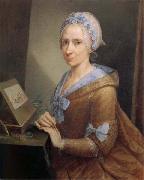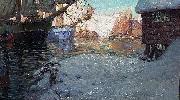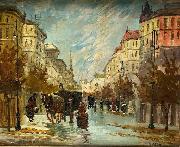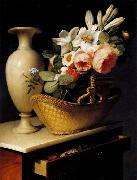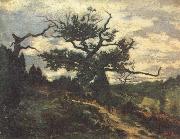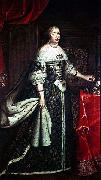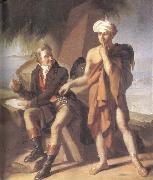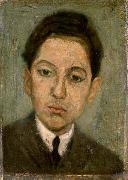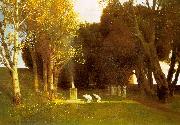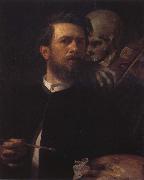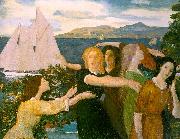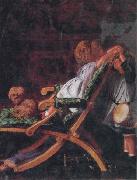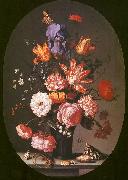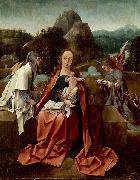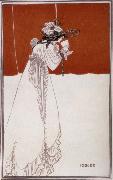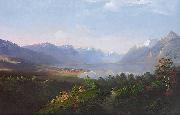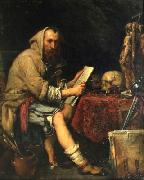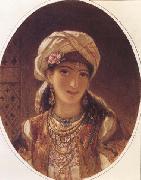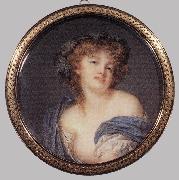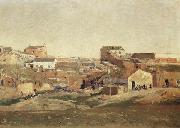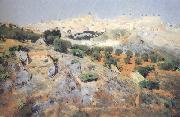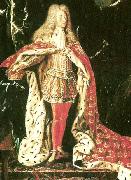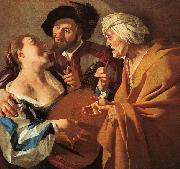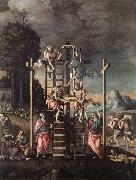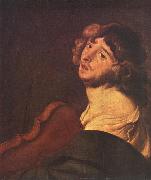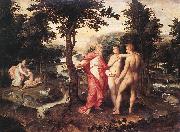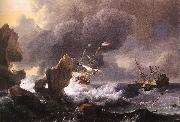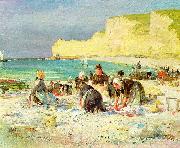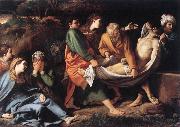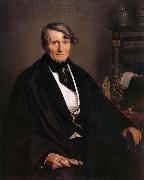|
|
|
|
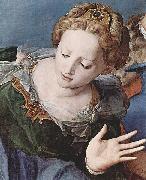 |
Angelo Bronzino
|
|
(November 17, 1503 - November 23, 1572), usually known as Il Bronzino, or Agnolo Bronzino (mistaken attempts also have been made in the past to assert his name was Agnolo Tori and even Angelo (Agnolo) Allori), was an Italian Mannerist painter from Florence. The origin of his nickname, Bronzino is unknown, but could derive from his dark complexion, or from that he gave many of his portrait subjects.
Bronzino was born in Florence. According to his contemporary Vasari, Bronzino was a pupil first of Raffaellino del Garbo, and then of Pontormo. The latter was ultimately the primary influence on Bronzino's developing style and the young artist remained devoted to his eccentric teacher. |
|
|
|
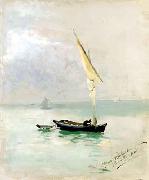 |
Anna Bilinska-Bohdanowicz
|
|
(1857-1893) was a Polish painter, known for her portraits. She was born as Anna Biliska, a daughter of Polish doctor in Ukraine, where she spent her childhood. She lived with her father in Russia, before studying music and art in Warsaw.
She went later to study at the Academie Julian in Paris. She lived in France until 1892, when she married a medical doctor named Bohdanowicz and she took his name (Anna Bilieska-Bohdanowicz).
They returned to Warsaw after their marriage, where she died a year later of heart attack.
Her paintings are known from the reproductions of her portraits of women and often reproduced view of the Unter den Linden in Berlin from 1890.
|
|
|
|
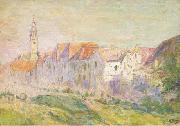 |
Anna Boch
|
|
(10 February 1848 - 25 February 1936) was a Belgian painter, born in Saint-Vaast, Hainaut. Anna Boch died in Ixelles in 1936 and is interred there in the Ixelles Cemetery, Brussels, Belgium.
Boch participated in the Neo-Impressionist movement. Her early works used a Pointillist technique, but she is best known for her Impressionist style which she adopted for most of her career. A pupil of Isidore Verheyden, she was influenced by Theo van Rysselberghe whom she met in the Groupe des XX.
|
|
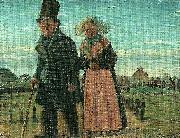 |
anna brondum
|
|
Omkring 1900 drog en rad av kvinnliga konstnärer från Norden mot Frankrike, Italien, Tyskland och andra länder i Europa. Hanna Pauli, Sigrid Hjerten och Anna Bröndum är i dag kända, men den vårgårdafödda Hilda Heyman hörde också till dessa målande kvinnor. Hon är inte så känd men väl erkänd i konstnärliga kretsar och representerad på många konstmuseer. |
|
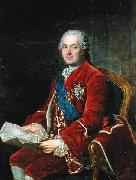 |
Anne Baptiste Nivelon
|
|
Portrait de Louis de France, dauphin (1729 - 1765) represente tenant des plans militaires |
|
|
|
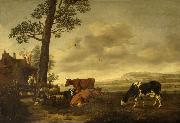 |
Anthonie van Borssom
|
|
(January 2, 1631, Amsterdam - march 19, 1677, Amsterdam), was a Dutch Golden Age landscape painter.
According to the RKD he was an Italianate landscape painter who copied works of popular landscape painters of his day in Amsterdam such as Jacob van Ruisdael, Paulus Potter, Aelbert Cuyp (church interieurs), Nicolaes Berchem, Philips Koninck, Jan Wijnants, Aert van der Neer (moonlit landscapes), and Cornelis Vroom. He lived and worked in Amsterdam but made a trip in 1650-1655 along the Rhine and spent time in Kleve.He was buried in the Westerkerk. |
|
|
|
|
|
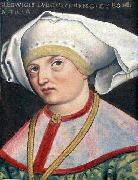 |
Antoni Boys
|
|
Antoni Boys
artist in 14th century to 15th century |
|
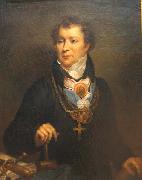 |
Antoni Brodowski
|
|
(26 December 1784 - 31 March 1832) was a Polish Neo-classicist painter and pedagogue. Brodowski was born in Warsaw but moved to Paris to study under Jean Augustin and Jacques-Louis David, later Brodowski's idol. He also became a pupil of Anne-Louis Girodet and Francois Gerard. His compositions are very large-scale with many figures, and often based on themes from Antiquity. Brodowski is also well-known for his decorative paintings within palaces and theatres in Warsaw.
|
|
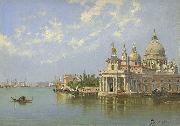 |
Antonietta Brandeis
|
|
(1849, Miskowitz (Czech: Myslkovice) - 1920), was an Austrian painter.[1][2]
Select Museum Collections: Museum Revoltella, Trieste
|
|
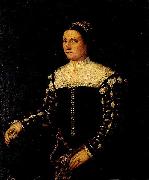 |
Antonio Badile
|
|
Antonio Badile (c. 1518 - 1560) was an Italian painter from Verona. He trained with his uncle Francesco Badile. Along with Giovanni Francesco Caroto, Antonio is known as one of the mentors of Paolo Veronese and Giovanni Battista Zelotti; as well as his father-in-law. Badile is described as continuing the "retardataire" tradition of Giovanni Francesco Caroto well past the 1540s. His masterpiece is the altarpiece for San Nazaro of a Madonna and Saints (1540); another notable work is his Resurrection of Lazarus for the chapel of Santa Croce in the church of San Bernardino. Other works are found in towns of the Veneto. |
|
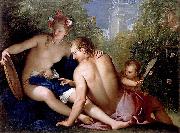 |
Antonio Bellucci
|
|
Antonio Bellucci (1654-1726) was an Italian painter of the Rococo period, who was best known for his work in England, Germany, and Austria. He was one of the many Venetian-trained artists of his time, including Ricci, Tiepolo, Amigoni, and others, who sought commissions north of Italy, providing patrons with the then-popular Italianate grand-manner frescoes for private palaces.
|
|
|
|
|
|
|
|
|
|
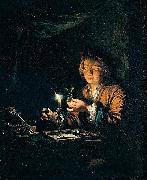 |
Arnold Boonen
|
|
Arnold van Boonen was a Dutch eminent portrait painter, was born at Dordrecht, in the Dutch Republic in 1669. He was first a scholar of Arnold Verbius, and was later instructed by Godefried Schalken. He painted genre pictures in the style of the latter, representing subjects by candlelight, but met with such encouragement in portrait painting that he devoted himself almost wholly to that branch of art. His style was well adapted to succeed in it. An excellent oolourist, a faithful designer of his model, and highly skilled, he was soon distinguished as one of the ablest artists of his day. He painted a great number of portraits of the most distinguished people of his time, among whom were Peter the Great, the Elector of Mentz, the Landgrave of Hesse-Darmstadt, the Prince and Princess of Orange, the great Duke of Marlborough, and several others. He painted some large pictures for the halls of the different companies at Amsterdam and Dordrecht. He died in 1729.
The Dresden Gallery has seven works by him, and the 'Woman Singing' in the Lille Gallery is also attributed to him. His son, Kasper van Boonen, also painted portraits, but in no way proved himself equal to his father.
|
|
|
|
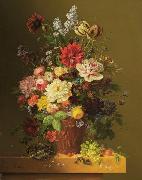 |
Arnoldus Bloemers
|
|
born at Amsterdam in 1792, painted flowers, fruit, and animals. He was instructed by Antonie Piera, but principally imitated Van Huijsum. He died at the Hague in 1844. The Rotterdam Gallery has a flower-piece by him.
|
|
|
|
|
|
|
|
|
|
|
|
|
|
|
|
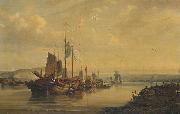 |
Auguste Borget
|
|
Auguste Borget (1808-1877) was a French artist who is best known for his drawings and prints of exotic places, in particular China. He was born in 1808 in Issoudun, Indre. At age 21, he went to Paris where he became a close friend of Honore de Balzac. Borget periodically exhibited at the Paris Salon from 1836 to 1859. Beginning in 1836, he traveled through North and South America before stopping briefly in Honolulu in May, 1838, on board the ship "Psyche", on a world tour. He went to Canton in September 1838 and stayed in the region for 10 months. While in Canton, he met the English artist George Chinnery, and they went on sketching trips together.
In July 1839 he visited Manila, Singapore and Calcutta. In 1840 he traveled widely in India, returning to Paris in the summer of that year. Borgetes sketches and watercolors from China were the basis for his most famous publication "Sketches of China and the Chinese", published in 1842. His book "La Chine ouverte" was illustrated with fine woodcut engravings. A major Salon of his original works, including watercolors and boldly executed oil paintings was held in Paris in 1843. Borget died in 1877. |
|
|
|
|
|
|
|
|
|
|
|
 |
Ayne Bru
|
|
Ayne (Aine) Bru (probably a Catalanization of Hans Bren) was a 16th century Renaissance painter of German origin who worked in Catalonia. He may have proceeded from Lummen, in the Duchy of Brabant. He is sometimes also called Lucius de Brun. His surname may also suggest provenance from the town of Brenn.
In 1502, he was hired to paint the main altar (retablo) in the church of the monastery of Sant Cugat del Valles, for which he was paid a staggering wage between 1504 and 1507.
On the central panel, Bru depicted the martyrdom of Saint Cucuphas (in Catalan, Sant Cugat) with enormous realism. The executioner cuts the saint's throat while Cucuphas remains tied to a tree trunk. Nearby, there appear another knife (in a basket) and a dog sleeping peacefully. This work is now at the National Art Museum of Catalonia (Museu Nacional d'Art de Catalunya).
The dog from Bru's painting of Cucuphas' martyrdom was later borrowed by Salvador Dale for a painting called "Dale Contemplating Nude" or "Dale Dale Dale".
The vast countryside that serves as a background anachronistically includes the actual monastery of Sant Cugat. Another panel, depicting Saint George (sometimes identified as Saint Candidus or simply as "Warrior Saint"), was attached to this one. It has been rejoined and is visible at the National Art Museum of Catalonia.
Marcel Durliat believes that though the expressionism in this painting is evidence of a Germanic artistic tradition, Bru's Quattrocento depiction of the standing figures in contemporary dress, as well as other details, indicate that the painter may have lived or studied in Northern Italy before moving to Barcelona. |
|
|
|
|
|
|
|
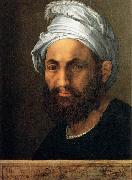 |
Baccio Bandinelli
|
|
(17 October 1493 - shortly before 7 February 1560), was a Renaissance Italian sculptor, draughtsman and painter.
Bandinelli was the son of a prominent Florentine goldsmith, and first apprenticed in his shop. As a boy, he was apprenticed under Giovanni Francesco Rustici, a sculptor friend of Leonardo da Vinci. Among his earliest works was a Saint Jerome in wax, made for Giuliano de' Medici, identified as Bandinelli's by John Pope-Hennessy
Giorgio Vasari, a former pupil in Bandinelli's workshop, claimed Bandinelli was driven by jealousy of Benvenuto Cellini and Michelangelo; and recounts that:
|
|
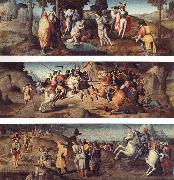 |
Bachiacca
|
|
Italian painter, Florentine school (b. 1494, Firenze, d. 1557, Firenze). |
|
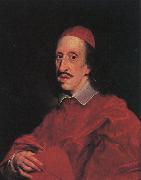 |
Baciccio
|
|
Italian Baroque Era Painter, 1639-1709
Baciccia
Giovanni Battista Gaulli |
|
|
|
|
|
|
|
|
|
|
|
|
|









